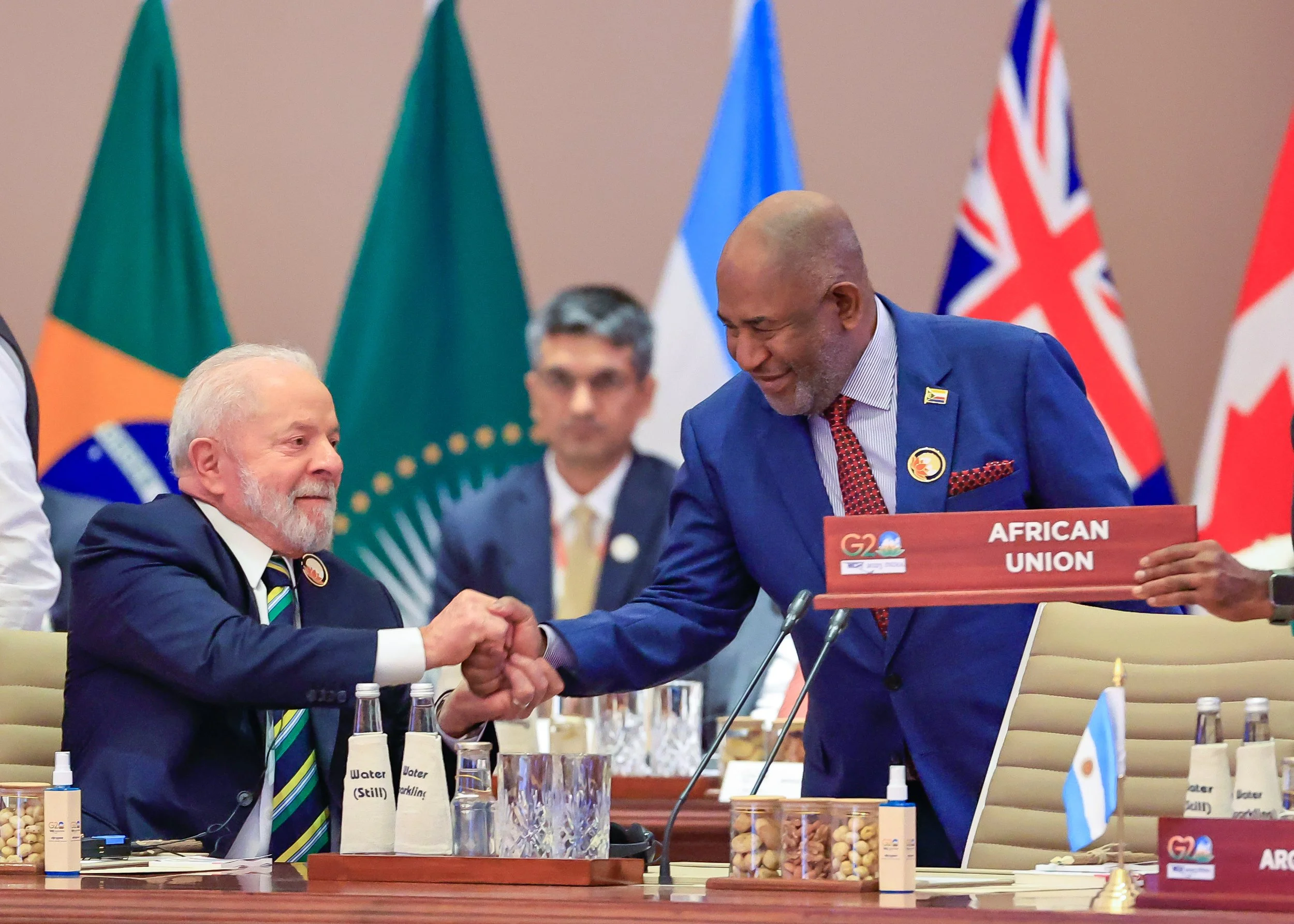G20 Becomes G21: African Union Now Permanent Member
Brazilian President Luiz Inácio Lula da Silva shakes hands with AU Chairperson and President of Comoros Azali Assoumani at the 2023 G20 summit (Ricardo Stuckert, Flickr)
The G20 granted the African Union (AU) permanent membership during its 2023 annual summit in New Delhi, India. Indian Prime Minister Narendra Modi welcomed the AU in his opening remarks on September 9, acknowledging on behalf of the members the growing importance of Africa in global affairs.
The Group of 20 (G20), founded in 1999, is a forum of the world’s leading economies, representing 85 percent of global GDP, 75 percent of global trade, and two-thirds of the world’s population. It comprises 19 countries in addition to the EU and the AU.
“It was in the spirit of ‘Sabka Saath’ that India proposed permanent membership for the African Union in the G20,” Modi said during his remarks, referring to a Hindi slogan that means “everyone’s support.” “I believe that we all agree on this proposal.”
Previously, South Africa was the only African country in the G20. The African Union was an invitee organization, allowed to participate in summits but barred from assuming leadership through the rotating chair position. The AU has worked for seven years to become an official member with the support of the international community. In 2022, President Joe Biden called for the AU to join the G20 as a permanent member during the U.S.-Africa Summit.
The AU, founded in 2002, is composed of 55 member states in the African continent with a total population of 1.4 billion people. Upon joining the G20, the AU now stands alongside the EU as a regional representative.
“This membership, for which we have long been advocating, will provide a propitious framework for amplifying advocacy in favor of the Continent and its effective contribution to meeting global challenges,” Moussa Faki Mahamat, chairman of the AU, wrote on X, formerly known as Twitter.
According to its mission statement, the AU aims to empower Africa to “play its rightful role in the global economy while addressing multifaceted social, economic, and political problems compounded as they are by certain negative aspects of globalization.” G20 membership gives Africa a voice at the international table—especially important because Africa faces pressing economic and political challenges that cut across international borders.
For instance, representation at the G20 enables the forum to help Africa cope with climate change. Africa possesses vast amounts of minerals and renewable energy sources, but richer countries investing in African resources continue to emit greenhouse gasses. The first African Climate Summit, held from September 4 to 6, advocated for global climate financing reform. The summit proposes a global tax on fossil fuels and greater climate financing for developing countries. The AU looks for G20 support in implementing these measures.
“[G20 membership] will increase the voice of Africa, visibility, and influence on the global stage and provide a platform to advance the common interest of our people,” President William Ruto of Kenya wrote on X. “This fits perfectly with the resolutions of the just-concluded Africa Climate Summit, including the reform of international financial institutions and multilateral development banks.”
Other leaders of the continent agree. “Africa’s permanent membership of the G20 means it has been recognised as a key player on the world economic landscape,” Zambian President Hakainde Hichilema said on X. “African countries must now leverage this position to accelerate development of their economies and their young populations.”




